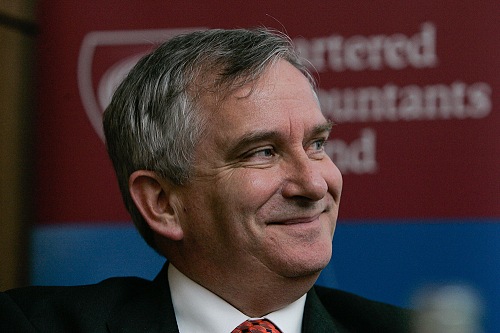You recently took on a new role with IBM, for UK and Ireland. What does that involve and what ambitions have you set for the company?
The role is a fascinating one for me personally. I have responsibility for the entire workforce across the two countries, their utilisation, their professional development and the face of IBM Global Business Services to the market. Key for me is direct leadership of the people who are at the core of any professional services organisation, particularly consulting.
Our vision is to be the pre-eminent professional services and consulting business in UK and Ireland. And that means we have to be able to deliver a broad range of services with the most professional group of people in the land.
How well do you think the industry is doing in attracting the brightest and best into its ranks now?
IBM is doing very well judging by the graduate intake we have had in the last 3 years. But I do believe the industry has an issue with reputation which it has to overcome. Consultancies are able to get the best and brightest from the universities but it’s only when we expose them to what consulting actually is that you get the ‘oh wow’ moment that confirms it is a rewarding and exciting career.
It’s a different take when we look at attracting the best from industry. This is driven by people looking for a change in career and with a desire to grow and keep learning.
One of your consultants was this year’s MCA Young Consultant of the Year. What are you looking for most in the people you are attracting to IBM?
Four things:
First, a sense of adventure. As everybody will know, in our business you can’t know one day from another where you will be working or at what.
Second, a flexibility of mindset. We want people who are not only flexible in the way they work but particularly in how they adapt their thinking from a wide range of sources to bring it to bear on client challenges.
Third is a well-developed set of base skills. We want them to be able to do a particular job exceptionally well and those who demonstrate both a flexible mind set and high performance in a given area are well able to translate that performance in to other areas.
Finally, we look for a strong sense of people. We look beyond the normal team work skills for an understanding of the value of people as individuals, whether it is for clients, subordinates or colleagues. Being able to work with people to deliver high performance results.
Your own background is from the military. Do you feel there are useful skills and perspective to be translated from the military into consulting?
Certainly. There are a number of areas.
First and foremost, you are taught basic skills from a very early stage. Simple things like how to put together a plan and how to project your voice, Very basic but extraordinarily useful.
The second thing is being responsible and accountable at a young age which fits very well for a consulting environment.
The third thing is the appreciation for people. I was a junior officer and you got to work and mix in very trying circumstances with a wide range of people across the socio economic spectrum. You develop your understanding and appreciation for everybody’s strengths and ability to contribute to the achievement of the mission. This is important, whether it is a consulting engagement or a UN mission overseas.
How well is the economy performing? Is this being reflected in client behaviour?
We are at last seeing an upswing of the market across a wide range of countries. In part this is driven by the desire for organisations to adopt new technology. We are seeing real interest in cloud, analytics, mobile, social media and security and that is driving a lot of IBM’s agenda in the marketplace. Similarly we are seeing continued strength in more traditional consulting and work associated with M&A.
How much do you feel Britain’s businesses and public sector has woken up to the opportunities – and challenges – of Digital?
I think there is a high level of appreciation for the potential of digital across the marketplace. A lot of boardrooms now have an awareness of the potential implicit in the digital agenda. However, there is a degree of concern on how to best exploit it, particularly given the rapid transformation and the pace of change. No sooner does a board get its head around the digital agenda for their organisation than it seems there is a new twist.
What would be your message to the consulting industry?
I think we need to be much bolder in the way in which we convey the real value that consulting brings. We should all be making more of our industry body, both in getting our story out in the marketplace and also as individuals, contributing to the MCA. It was a particular boost for us at IBM to receive the recognition of winning the MCA Young Consultant of the Year, for the individual we recruited and the training we provided.

